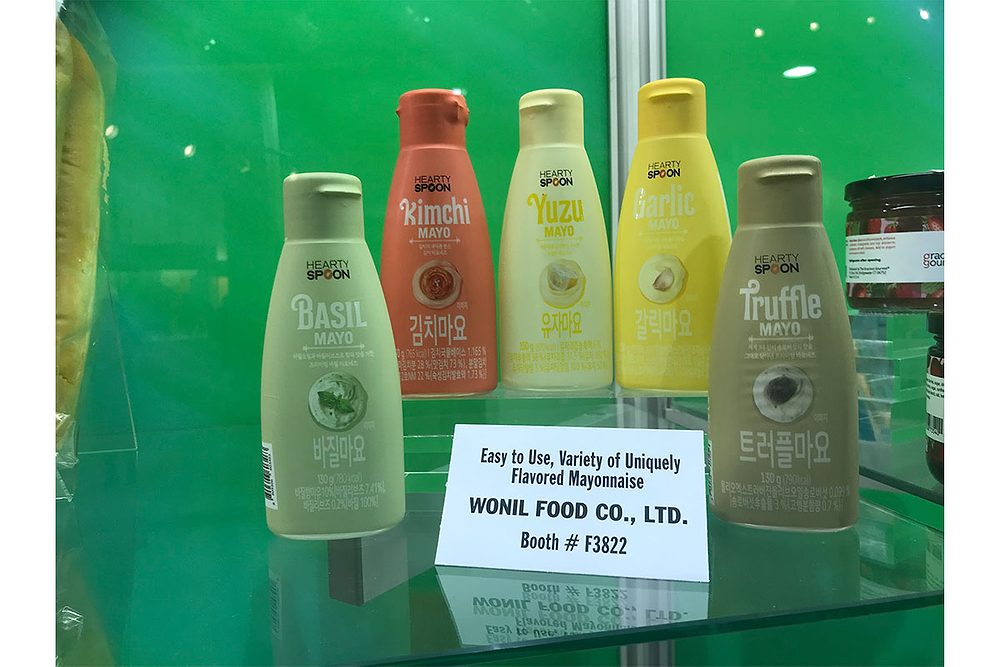
PLMA Show promotes the premium side of private label
ROSEMONT, ILL. — A record 1,685 exhibitors showcased the latest new products, flavors, packaging, ingredients and services at the 2023 Private Label Trade Show held Nov. 12-14 in Rosemont, Ill. The annual event is hosted by the Private Label Manufacturers Association, New York. The power of private brands was reflected in the show’s exhibitors, which featured more than 600 new to the event.
Today’s shoppers are buying private brands more often, according to the PLMA, which projected total US store brand dollar sales for 2023 to reach $233 billion, an increase of about $4 billion over 2022, based on data from Circana, Chicago.
Food and beverage manufacturers are investing in private brands by adding more of the attributes consumers want, including clean ingredient lists and premium flavor profiles. Those attributes are being sought by one of every two Gen Z grocery shoppers who “always/frequently” choose a place to shop due to its store brands, according to a recent PLMA consumer research report called “Gen Z loves store brands: America’s youngest consumers speak out on grocery shopping, stores and brands.” In the survey, 67% of Gen Z said they are “extremely/very” aware of store brands and 64% said they buy store brands “always/frequently.” More than half said they are “extremely likely/likely” to experiment with store brands to find “best value.”
“Gen Z store brand purchase frequency is most strongly driven by a perception that store brands are 'reliable,’” said Sara Williamson, assistant professor of marketing, State University of New York-Old Westbury, who analyzed the survey results and presented her findings at the trade show. “Reliability perception is a stronger store brand purchase predictor than any other measure, including household income and monthly grocery spending.”
The survey was conducted in mid-2023 and consisted of 934 respondents, with 51% female and 48% male. The breakdown by Gen Z age was 16% between 18 and 21 years, 43% between 22 and 25, and 41% between 26 and 28. Almost one-fifth had a total household income of less than $25,000 during the prior 12 months, while 13% reported household income was $100,000 or more for the period.
The impact of store brand reliability is an indicator of the manufacturer-retailer relationship and is more important than ever, Ms. Williamson said.
“To succeed with Gen Z, retailers must establish a foundation of store brand suppliers who meet their customers’ quality expectations,” she said.
This relationship is expected to remain a priority for Gen Z, a cohort that changed grocery shopping habits during the past year because of inflation and a group that has come to appreciate the savings. Two out of five respondents to the survey spent less money on groceries overall, with 38% making fewer trips to the store. Sixty-two percent said they looked for more sales this past year and 58% cut back on expensive items and reduced impulse buying.
The key, however, is Gen Z expects more from their foods. They are looking for brand reliability in an otherwise unstable world.
“Further, they enjoy shopping in the store more than most think,” Ms. Williamson said. “Store brands can offer Gen Z shoppers the digital, physical and financial stability they need while providing the engaging and satisfying shopping experience they crave.
“Gen Z wants their brands to stand for something, just as they do. Therefore, we expect that this emphasis on personal values and self-expression could pose a unique opportunity for store brands to connect with Gen Z shoppers by continuing to reach beyond a price-oriented value proposition and focus on aligning brand identity with the personal needs and values of Gen Z.”
Such values include prioritizing the planet, which is why plant-based was a significant theme on the expo floor. Manufacturers offered new options in plant-based ethnic meals as well as convenient handheld snacks, including beefless Korean bulgogi and cheese-free breaded mozzarella sticks. Whole fruits and vegetables —minimally processed and sold in the freezer or ambient shelf — also were more sophisticated, with blends and global flavors now available to retail brands.
Sevillo Fine Foods, Salt Lake City, is a producer of chef-inspired vegetables, fruits, condiments and sauces primarily for foodservice and industrial customers. The company now offers select products for store brands, such as individually quick-frozen fire-roasted sweet corn with olive oil and sea salt. Products “coming soon” include fire grilled peach slices; chipotle lime southwest corn and rice blend with black beans, red pepper and poblanos; and a fire roasted vegetable (zucchini, onion and red pepper) and farro blend.
The global shift to spicy food options has found its way into the snack aisle, which is heating up with new flavor combinations featuring jalapeño, chili, habanero and other spicy peppers. Products spotted on the expo floor included chipotle cheddar trail mix, habanero pork rinds and jalapeño sweet potato chips.
Flavorful condiments, cooking sauces and marinades all have experienced noteworthy innovation and subsequent growth since the onset of the pandemic. The products are proving to be an economical approach to giving new life to a bowl of rice or pasta, a boneless chicken breast or grilled vegetables.
“The hybrid meal has taken over America’s kitchens, with the continued home-centered world having room for premium purchases,” said Anne-Marie Roerink, principal, 210 Analytics, Houston. “Half of Americans say they prepare dinner using a mix of scratch-cooked and semi-and fully prepared items.”
Flavor profiles relying on spice and heat, from sriracha to curry to peri-peri, are among the flavors capturing consumers’ attention. Consumers aren’t afraid of heat when they can control its addition to a dish. They increasingly are adding spice and heat, sometimes with a touch of sweet, also known as “swicy,” at all day parts. And the growing private label shopper is looking to retailers to offer them value-added options in the space, which had been limited to store-brand ketchup, mustard and marinara. Seasoned mayonnaises, spiced up cooking sauces and flavored cooking and topical sprays were abundant on the show floor.
